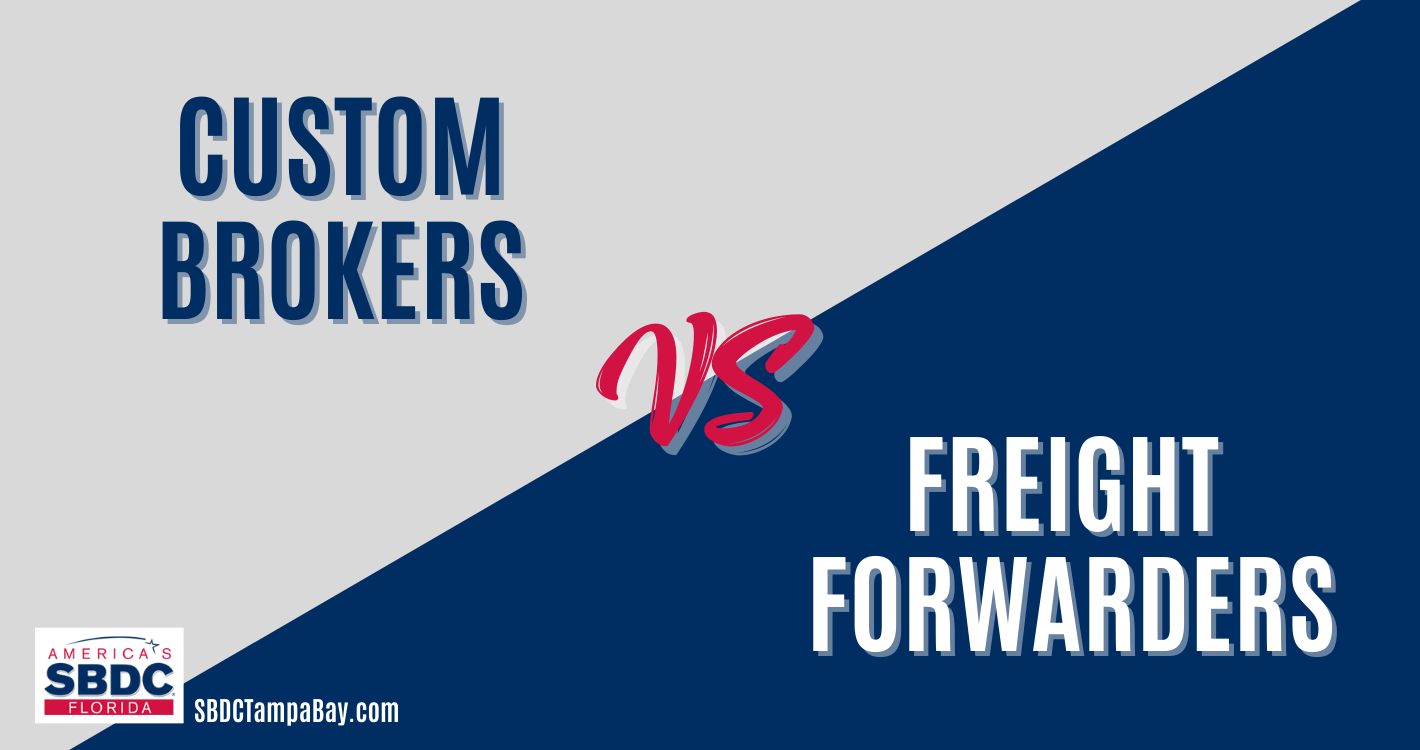Customs Brokers vs. Freight Forwarders

by Selma Canas, CGBP | November 14, 2022
Some may think customs brokers and freight forwarders are one in the same, while others may not know they even exist. In fact, they play very different roles in the international trade arena and may be the most trusted partner for the importer and/or exporter.
Regardless if one is importing or exporting, there are always two sides to contend with; the import side and the export side. The import side is managed by customs brokers, while the export side is managed by freight forwarders.
What is a Customs Broker?
Customs brokers are licensed by U.S. Customs and Border Protection (CBP) to clear goods at the port of entry. On behalf of the importer, the broker will classify products, file entry documents, pay duties, and ensure the goods and documentation are in compliance with import regulations. This is very important as rules and regulations vary greatly by industry, product, and country. Any discrepancy can cause goods to be delayed or seized by CBP resulting in costly fines or loss of merchandise for the importer. It is critical for the importer to perform due diligence when hiring a customs broker to ensure they are a reputable company.
What is a Freight Forwarder?
Freight forwarders handle the export transaction on behalf of the exporter. Depending on the needs of the exporter, freight forwarders can manage the transportation of the export freight from warehouse dock to customer door and everything in between. Freight forwarders can classify products, prepare export documents, pack and label freight, arrange for logistics to the port of departure, and ensure compliance with export regulations. Larger companies have partner agencies around the world and can arrange from customs clearance as well.
An export is an import in the destination country. Therefore, the exporter needs to understand the import process, regulations, and import duties of the importing country. Regardless of which party is paying the import fees, the exporter needs to know what the landed cost will be in order to be price competitive in that country.
Freight forwarders and customs brokers will quote their fees based on the needs of the company and all pertinent costs for the transaction. These may include document preparation, insurance, shipping, trucking, warehousing, and others. Importers and exporters should obtain quotes from several companies and ask a variety of questions to determine if they are a good fit.
One of the most important things to know is if the company has experience with the industry, product, and country. Depending on the industry and/or product, rules may be regulated by other agencies, such as the Food and Drug Administration or US Department of Agriculture. If you are importing or exporting food or cosmetics, as an example, you want a company that has experience in this area.
You want to choose a company that meets your specific needs and the import/export volume of your company. If you utilize several different ports, you may want to hire a broker with offices in those ports. If you import/export a high volume of goods, you may want to hire a larger company that can handle the volume or one that has warehousing space. Make sure to review the company’s website, ask pertinent questions and ask for referrals.
There are a few resources that can be utilized to search for companies. One is the National Customs Brokers & Forwarders Association of America, which has a membership directory that can be searched. The other is U.S. Customs and Border Protection, where one can search for brokers by port.





Selma Canas
Canas, Consultants, International Consultants 2, TampaNASBITE Certified Global Business Professional (CGBP), Florida SBDC at USF, Tamp
Specialties: International Trade, Export Marketing Plans, Market Research
Selma Canas is responsible for guiding small businesses through the complexities of developing export marketing and international expansion plans and teaching seminars on basic international trade. She has developed more than 30 Export Marketing Plans during the past six years for local businesses, and participated in trade missions to Brazil, Chile, Canada, and the Dominican Republic. Canas has more than 15 years of experience in sales, marketing and customer service in a variety of industries, including freight forwarding, real estate and advertising. As a co-owner of Restaurant Guide USA, she increased sales and distribution points and tripled the size of the distributed product.
As a real estate broker-owner, Canas carved a niche in the Latin American community and had a career sales volume of more than $37 million. Canas earned her bachelor degree in economics from the University of South Florida. She is a NASBITE Certified Global Business Professional and holds an Export and Trade Counseling Certification from the U.S. Small Business Association. Selma earned Florida SBDC at USF Employee of the Year honors in 2016. She is a member of Toastmasters international and is fluent in Spanish and Portuguese.